Parent-teacher conferences provide an opportunity to strengthen the bond between teachers and parents and foster a collaborative relationship in and out of the classroom.
But, for new teachers, I know these meetings can be a bit intimidating.
You may be worried that you will say the “wrong” thing, appear to be unprepared, or not know the answers to every question a parent may ask. These feelings are normal and completely understandable.
But, you do not have to be perfect. Parents aren’t looking for the perfect teacher, they simply want to know that you care about their child, and will do everything you can to help their child learn.
To help you feel more confident as you navigate parent-teacher conferences, I’ve put together a list of exactly what to say to parents and guardians at conference time. Here are several suggestions for what to talk about at parent-teacher conferences.
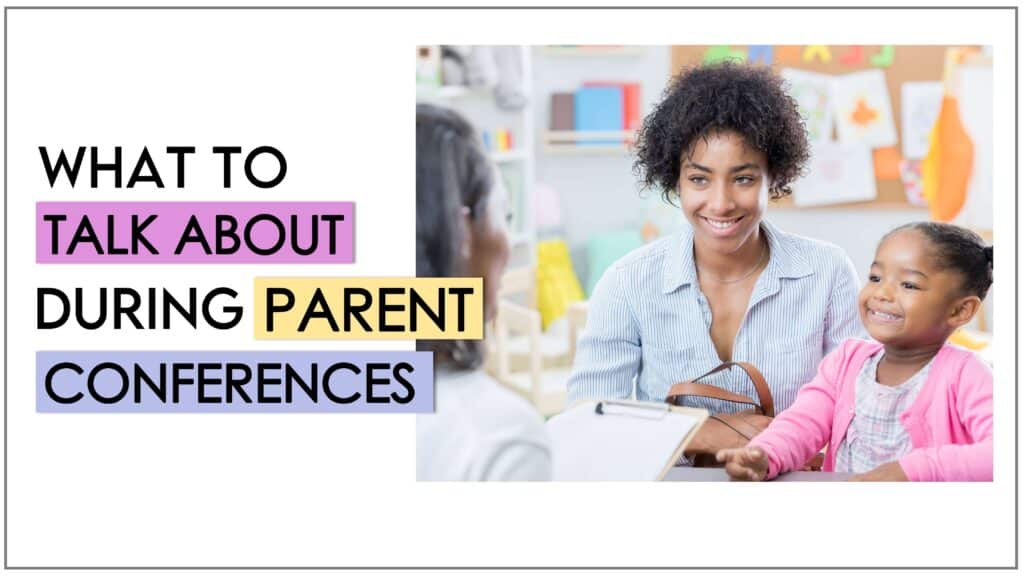
What to Say During a Parent-Teacher Conference
Depending on your teaching style, personality, or district requirements the specifics of what you share may change from school to school (ex: different tests, student-led, etc). But, for the most part, every single parent-teacher conference should touch on the following talking points.
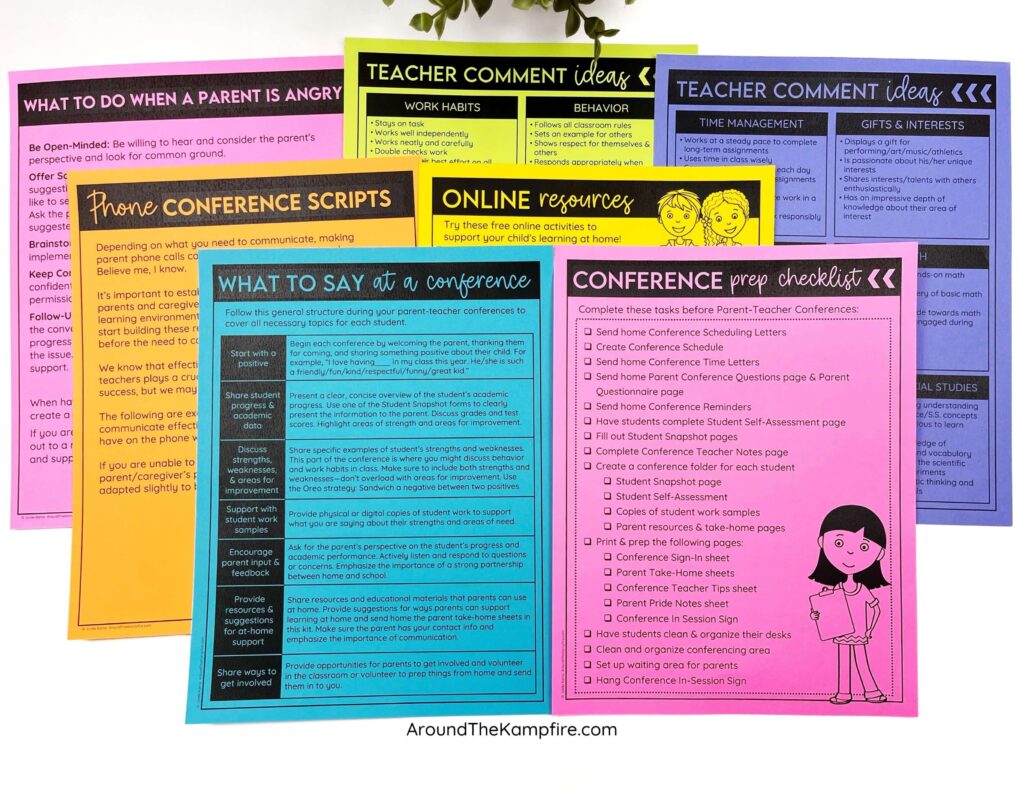
Show parents that you care about their child
As a parent myself, I know that all parents want is to know that you like their child, and will treat them fairly and with respect. Let parents know how much you enjoy their child. Tell them about moments that make you proud of their child, before expressing any concerns you might have. Talking about concerns is much easier after you have shared positive things.
Share student progress and academic data
Give parents an overview of their student’s academic progress. Show parents that you know their child and can see their progress or their struggles.
Discuss grades and test scores. Often conferences are held just before a school break and it’s a good time to give parents a progress report or their child’s report card.
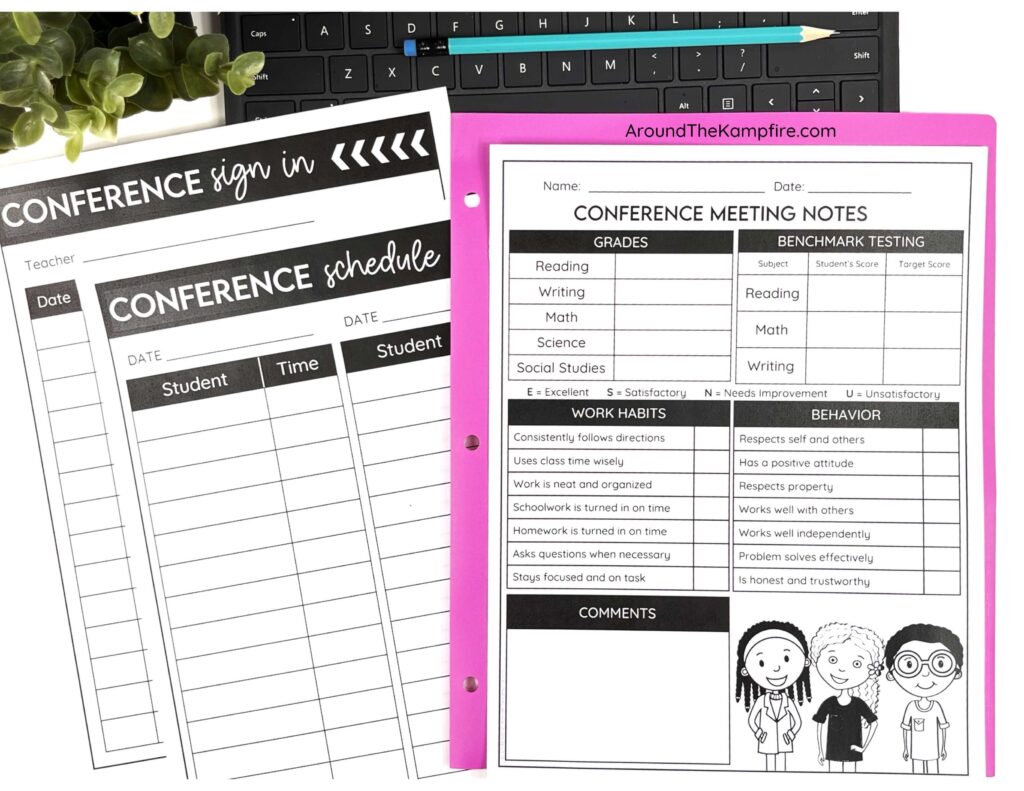
Gather data that gives parents a snapshot. Things like benchmark scores, literacy assessments, reading fluency data, math facts tests, and any other assessments you can give to parents to show where their child is academically, and where we would like them to be at the end of the school year.
Highlight areas of growth and improvement. Explain to parents where you see growth in their child and what their child is still working on.
Discuss student strengths, weaknesses, and areas for improvement
Address all areas of concern and offer support. Encourage parent feedback and ask them to share any thoughts about how their child is doing socially, emotionally, and academically. I’ve often gained valuable insight, and new ways I hadn’t thought of, to help a child after talking to their parents.
Use the Oreo strategy when having to discuss a difficult issue. Always sandwich negatives between two positives.
Review student work samples and other materials
Discuss specific examples of the child’s achievements and goals they may have met.
I keep a folder for each student that we call their work portfolio. Samples of writing, spelling tests, center work and anything else that can give a parent an idea of their child’s ability go in the portfolios. This gives me specific examples to show parents their student’s student’s strengths and areas that need improvement.
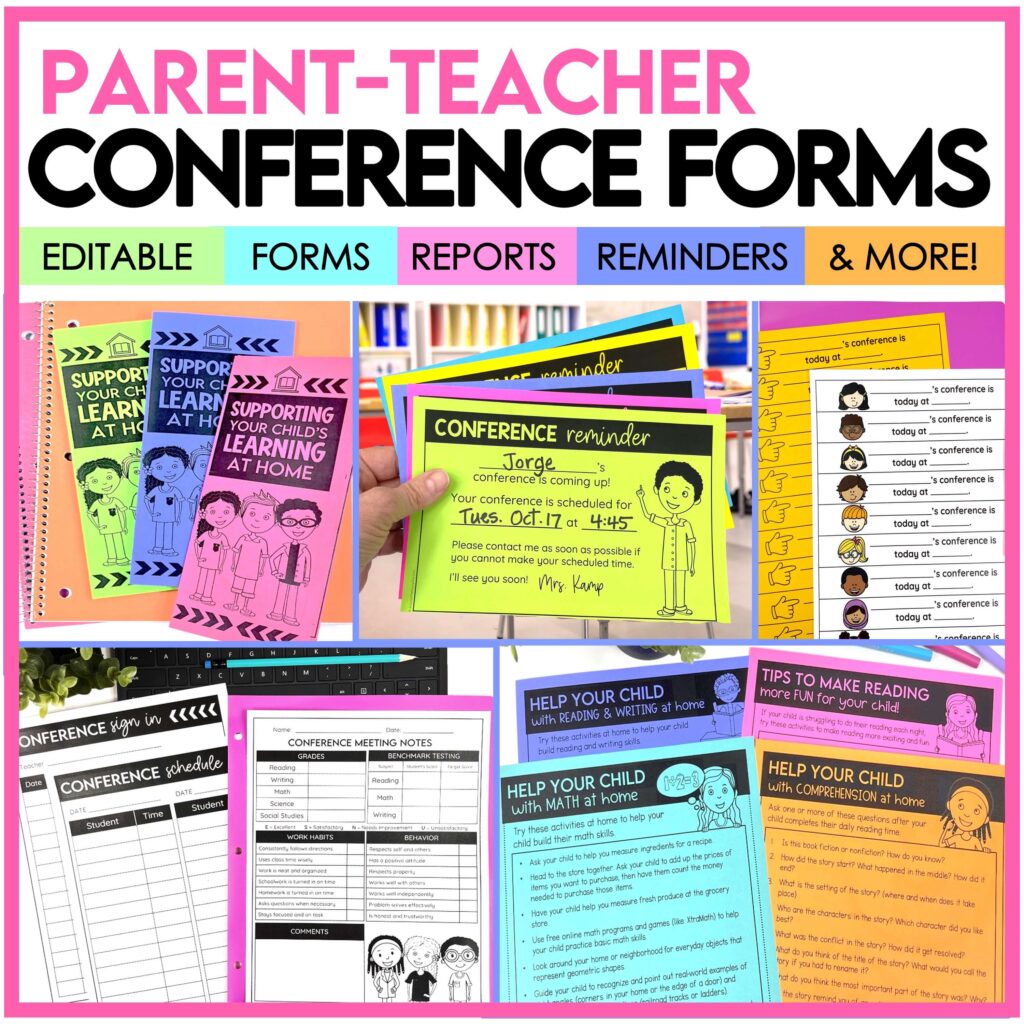
Editable Conference Forms & More
Encourage parent input and feedback
Ask for the parent’s perspective on the student’s progress and their academic performance. Do they struggle to do their homework? Are they reading every night if that is one of your requirements? If so, how is that going? Ask parents what they notice when their child reads.
Listen actively and respond to all questions or concerns that parents may have. If you don’t know the answer to a question they ask be honest and say,” I don’t know the answer to that but I’ll find out and get back to you.”
Emphasize the importance of partnership between school and home. One of the benefits of having parent-teacher conferences is to show parents that you want to work with them and are invested in their child’s success and well-being.
Provide suggestions and resources for supporting the student at home
Put together handouts with suggestions for ways parents can help their child at home and support what they are learning at school. It has been my experience that parents want to help their children at home but often they don’t quite know how. Get a free parent brochure with tips for supporting learning at home.
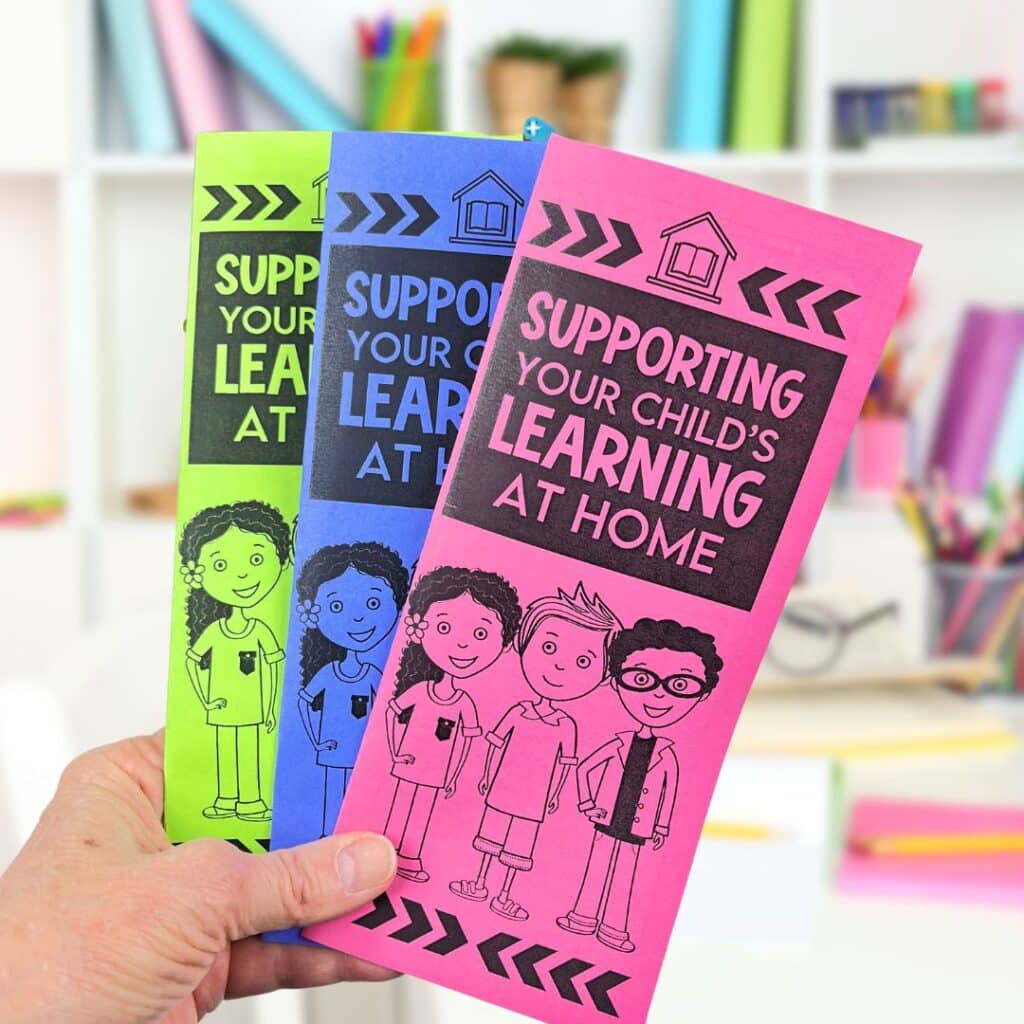
Emphasize the importance of regular communication and remind parents of the different ways you will communicate with them whether it is via an app, a hard copy classroom newsletter that comes home weekly, regular emails, or any other way you wish to stay in touch and keep parents informed. Consistent communication is key to a good working relationship and these parent communication tips can help!
Offer opportunities for parents to volunteer or be more involved in the classroom. I always let parents know about ways they can help at home if they would like to. Many families have young children and the parents can’t spend time in our classrooms. Prepping materials, cutting out lamination, or anything else that lends itself to being sent home to do can keep parents involved even when they can’t come into school to volunteer.
As you prepare for parent conferences, use these editable conference forms to create an agenda for each student with things you want to discuss to keep the conference on track. The forms are fully editable with spaces for strengths areas of improvement, benchmark scores, and more. Each conference form can be customized to fit your needs.

Try these tips to help guide you through what is often a hectic time for teachers, so you can feel confident and prepared as you talk to your student’s parents.
Visit these posts for more tips on parent-teacher communication and preparing for conferences!
How to Prepare for Parent Conferences

How to Have Difficult Conversations With Parents

Simple Parent-Teacher Communication Strategies That Work
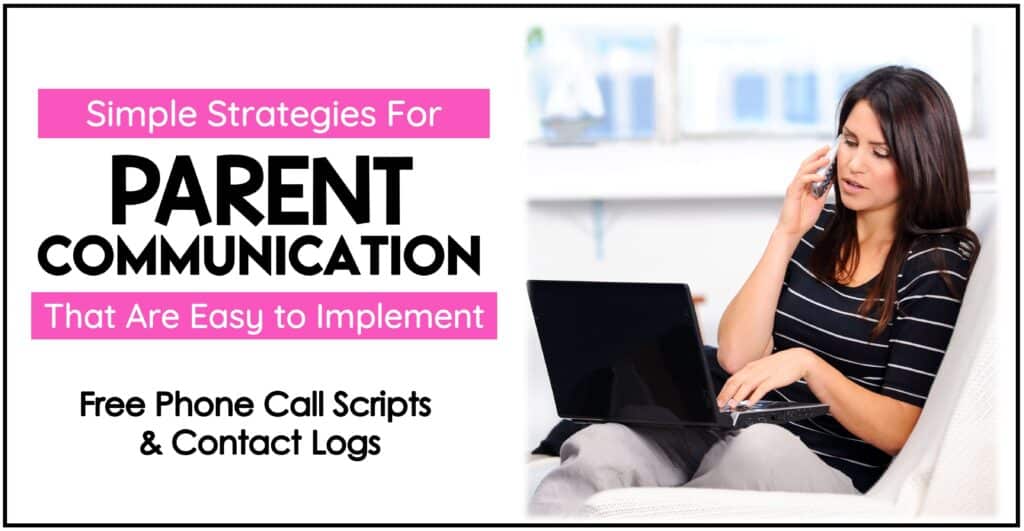






Leave a Comment